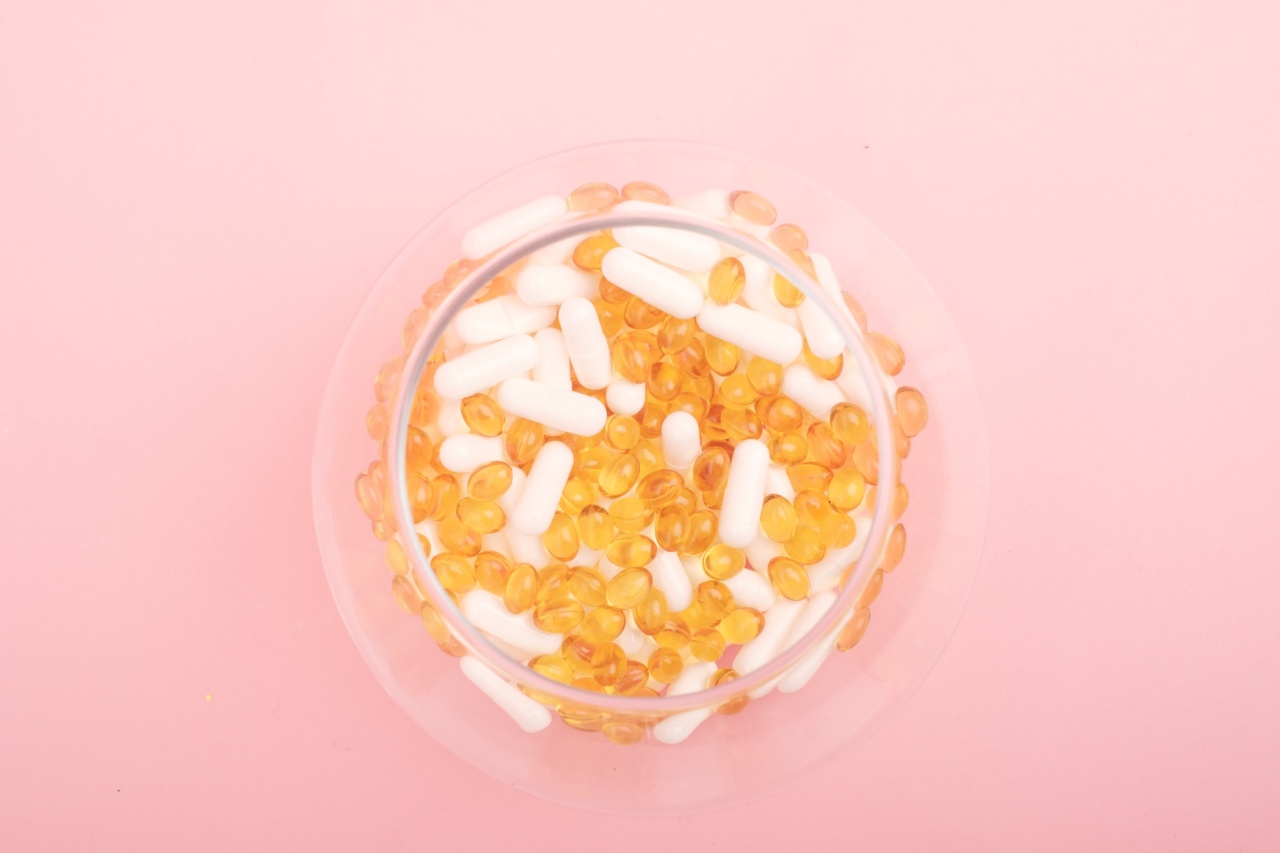Blood clots are a common cause of heart disease, stroke, and other serious health conditions. To prevent blood clots, it is important to maintain a healthy lifestyle and consume vitamins that promote healthy blood flow and circulation.
Here are some essential vitamins you need to prevent blood clots:.
Vitamin E
Vitamin E is important for preventing blood clots because it acts as an antioxidant that helps to prevent the oxidation of LDL cholesterol.
LDL cholesterol is known to contribute to the formation of blood clots, so by preventing its oxidation, vitamin E helps to reduce the risk of blood clot formation. Additionally, vitamin E helps to dilate blood vessels, which promotes healthy blood flow and reduces the risk of blood clotting.
Foods that are rich in vitamin E include nuts, seeds, leafy green vegetables, and vegetable oils. It is also available in supplement form, but it is important to consult with your doctor before taking any supplements.
Vitamin K
Vitamin K is important for blood clotting because it helps to activate coagulation factors that are needed for blood to clot.
While too much vitamin K can prevent blood from clotting properly, a deficiency in this vitamin can increase the risk of excessive bleeding and bruising. It is important to maintain a proper balance of vitamin K in the diet to prevent both blood clotting and bleeding disorders.
Foods that are rich in vitamin K include green leafy vegetables, vegetable oils, and some meats and cheeses. It is important to consult with your doctor before making any changes to your diet or taking any supplements.
Vitamin D
Vitamin D is important for preventing blood clots because it helps to regulate calcium levels in the blood. Calcium is necessary for blood clotting, but too much calcium can increase the risk of blood clots and other health problems.
Vitamin D helps to regulate the absorption of calcium and other minerals in the body, which promotes healthy blood flow and can reduce the risk of blood clotting.
Foods that are rich in vitamin D include fatty fish, such as salmon and tuna, fortified dairy products, and eggs. Vitamin D is also available in supplement form, but it is important to consult with your doctor before taking any supplements.
Vitamin B6
Vitamin B6 is important for preventing blood clots because it helps to regulate the production of homocysteine, an amino acid that is associated with the development of blood clots and other health problems.
Vitamin B6 is also important for maintaining healthy blood vessels and promoting healthy blood flow.
Foods that are rich in vitamin B6 include bananas, chicken, fish, potatoes, and spinach. Vitamin B6 is also available in supplement form, but it is important to consult with your doctor before taking any supplements.
Vitamin C
Vitamin C is important for preventing blood clots because it helps to strengthen the walls of blood vessels and promotes healthy blood flow.
Additionally, vitamin C has antioxidant properties that can help to protect against oxidative damage that can contribute to the formation of blood clots.
Foods that are rich in vitamin C include citrus fruits, berries, kiwi, melons, red peppers, and broccoli. Vitamin C is also available in supplement form, but it is important to consult with your doctor before taking any supplements.
Vitamin B12
Vitamin B12 is important for preventing blood clots because it helps to regulate the production of red blood cells, which are necessary for healthy blood flow.
Additionally, vitamin B12 is important for maintaining healthy blood vessels and promoting healthy blood flow. A deficiency in vitamin B12 can increase the risk of blood clots and other health problems.
Foods that are rich in vitamin B12 include meat, fish, dairy products, and eggs. Vitamin B12 is also available in supplement form, but it is important to consult with your doctor before taking any supplements.
Vitamin A
Vitamin A is important for preventing blood clots because it helps to maintain healthy blood vessels and promotes healthy blood flow.
Additionally, vitamin A is important for promoting healthy skin and immune function, which can help to prevent oxidative damage that can contribute to the formation of blood clots.
Foods that are rich in vitamin A include sweet potatoes, carrots, spinach, and other leafy green vegetables. Vitamin A is also available in supplement form, but it is important to consult with your doctor before taking any supplements.
Vitamin B2
Vitamin B2 is important for preventing blood clots because it helps to promote healthy blood flow and maintain the integrity of blood vessels.
Additionally, vitamin B2 helps to prevent oxidative stress that can contribute to the formation of blood clots.
Foods that are rich in vitamin B2 include dairy products, eggs, lean meat, and dark leafy greens. Vitamin B2 is also available in supplement form, but it is important to consult with your doctor before taking any supplements.
Vitamin B9
Vitamin B9, also known as folate or folic acid, is important for preventing blood clots because it helps to regulate the production of red blood cells and promote healthy blood flow.
Additionally, vitamin B9 helps to prevent oxidative damage that can contribute to the formation of blood clots.
Foods that are rich in vitamin B9 include leafy green vegetables, citrus fruits, beans, and fortified cereals. Vitamin B9 is also available in supplement form, but it is important to consult with your doctor before taking any supplements.
Conclusion
Preventing blood clots is an important aspect of maintaining good health.
While these essential vitamins can help to promote healthy blood flow and reduce the risk of blood clotting, it is important to maintain a healthy lifestyle that includes regular exercise, a balanced diet, and regular check-ups with your doctor. Always consult with your doctor before making any changes to your diet or taking any supplements.





























